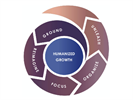Holmes Report 28 Jun 2015 // 5:02PM GMT
Just because people are saying positive things about your brand, it doesn’t mean they are real brand advocates, a new survey from Social@Ogilvy and SurveyMonkey shows. But, if companies use the right approach and techniques, they can be, and this global research sheds light on how.
The global, 11-country online survey of more than 5,000 social media users shows that the majority are actively noticing and engaging with brands via social media, with 84 percent of respondents reporting that they had “liked” or followed a brand, product or service. Of those that have “liked” or followed a brand, more than half (58 percent) have interacted directly with a brand and 79 percent received a response.
The survey also found no shortage of “social sharers,” who not only follow a brand, but who proactively share their experiences: 58 percent of respondents have communicated either positive or negative opinions about a brand with others.
But while six in ten (58 percent) respondents are “sharers”, only two in ten (19 percent) are true brand promoters. According to Ogilvy, “Authentic brand promoters are far more rare and influential than sharers, with the global research revealing notable differences to watch out for between them when looking to identify the profile of a promoter.”
Among the things that make promoters different:
- They are intrinsically more active followers: two-thirds (66 percent) follow brands on a regular basis, compared to only half of sharers (52 percent)
- Promoters follow brands in order to interact directly with them. 42 percent of sharers do this compared to half (52 percent) of promoters
One prime reason promoters follow brands is to be associated with them (39 percent, versus only 28 percent of sharers). Almost half (46 percent) also believe a brand’s reputation is important, compared to only 36 percent of sharers. They also prefer to link a brand to their own personal identify, with 45 percent saying they feel better about themselves after using a brand; only 35 percent of sharers say the same.
The friends of promoters talk about brands much more: 59 percent of promoters see their networks regularly mention brands and products, while only 47 percent of sharers do the same. And they are much more likely to respond to their friends’ interaction with brands; 35 percent would purchase a product if it was mentioned by a friend, compared to just 24 percent of sharers
True promoters have similar reasons for liking or following a brand, for example: 77 percent want to hear about products, offers, or news, followed closely by 53 percent who want to give direct feedback and 52 percent who want to interact directly with an organization. Promoters tend to surround themselves by like minds when it comes to their attitude towards brand interaction on social media: 91 percent say their friends’ mentions of brands are largely positive.
“Companies need to move beyond collecting likes and retweets with meaningless content,” says Thomas Crampton, global managing director, Social@Ogilvy. “Through genuine interaction and content designed to connect with true advocates, companies can drive forward their brand, business and reputation in ways not possible before this era of social media."


































.jpg)



.tmb-135x100.jpg)


.tmb-135x100.jpg)










